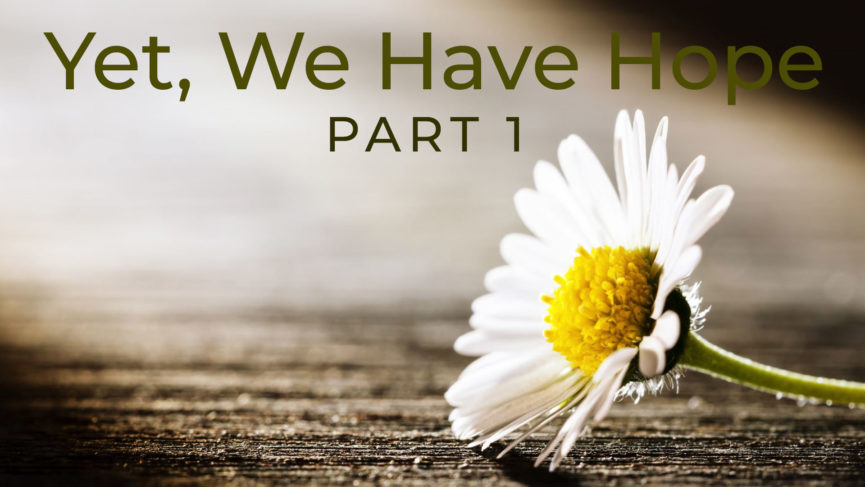What happens when deep personal loss or other life struggles veil our worship? How do we respond if our perspective of God becomes clouded by increasing moral darkness, civil unrest, and the impacts of a global pandemic? Our first inclination is not typically to read the book of Lamentations to restore our hope. We might read a few Psalms for a good “pick-me-up.” Yet, we may forget the Old Testament hymns and poems contain more laments than praise psalms.
In fact, the writer of Psalm 42 asks a question that Jesus’ followers in every generation, face during difficult times: “Why, my soul, are you downcast? Why so disturbed within me?” (v. 5). But aren’t we supposed to rejoice always and be victorious through Christ Jesus?
In the middle of bemoaning his troubles and tears, the psalmist sandwiches the secret for refreshing our prayer and praise when life’s disappointments seem insurmountable: “Hope in God, for I shall again praise Him for the help of His presence” (v. 5b).
Jeremiah, the probable author of Lamentations, may have remembered this psalm as he grieved the destruction of Jerusalem and lamented his afflictions and hardships. He offers us the consummate answer to life’s dilemmas—hope in God! The weeping prophet then defines the anchor of our hope as the Lord’s infinite love, unfailing compassions, and abounding faithfulness.
Yet this I call to mind and therefore I have hope: Because of the Lord’s great love, we are not consumed, for his compassions never fail. They are new every morning; great is your faithfulness (Lamentations 3:21–23).
He continues recounting the “whys” for his hope. Then he challenges himself and the people of Zion to examine their ways, return to the Lord, and acknowledge their sin and rebellion (vv. 25–42).
When divisiveness pervades a nation, this inspiring picture of repentance and hope, against the dark backdrop of despair, becomes a starting point for prayer. Even when the doors of prayer seem tightly shut, the foyer of weeping is always open.
The prophet’s hope confronts his sorrows. Faith debates with his fears. Night or day, the Lord God of heaven and earth demonstrates His extravagant kindness and inexhaustible faithfulness. God’s covenant love always wins the argument!

